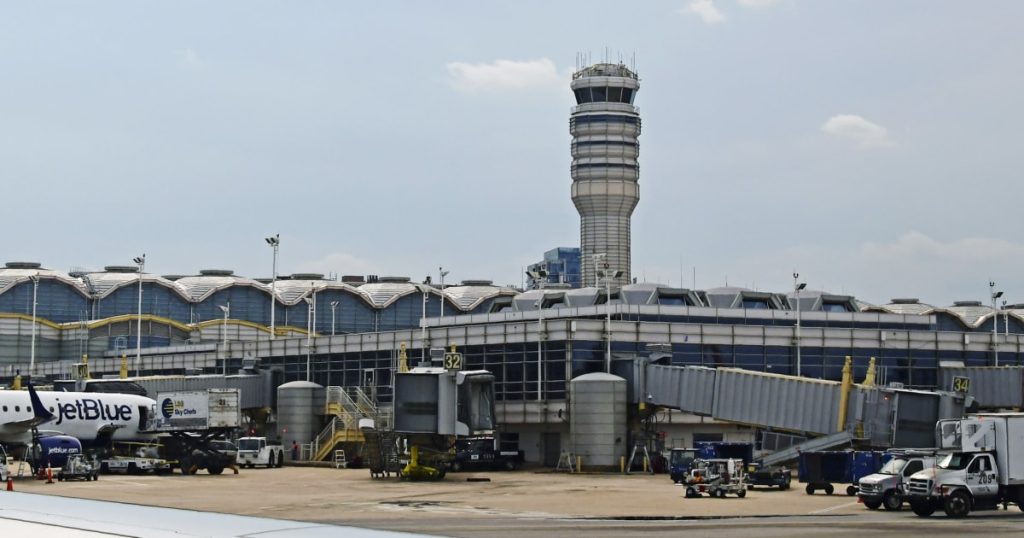A recent incident at Washington, D.C.’s Reagan National Airport involved a close call between a JetBlue flight and a Southwest Airlines plane. JetBlue Flight 1554 was in the midst of taking off when it was forced to abort due to Southwest Airlines Flight 2937 crossing the same runway. The planes came within 1,000 feet of each other, prompting concerns about safety. No injuries were reported, and both airlines are cooperating with the FAA in investigating the incident.
Passenger Theresa Hofmann described the terrifying moment when the JetBlue flight abruptly halted, stating that it felt like losing the ground beneath them. Investigations are underway to determine the cause of the mishap, with speculation that the incident may have been the result of an operational error. This incident is part of a worrying trend of close calls at American airports, including another incident in Austin where a Fedex cargo plane nearly collided with a Southwest passenger plane due to runway double-booking by an air traffic controller.
In response to the rise in near-collisions, the FAA hosted a safety summit in March 2023 to evaluate the current regulations governing American flights. The agency made a commitment to achieving zero serious close calls in the future and has reported a 33% decrease in serious runway incursions in fiscal year 2024 compared to the previous year. These efforts are aimed at improving safety standards and preventing further incidents that endanger the lives of passengers and airline crew.
The incident at Reagan National Airport underscores the importance of strict adherence to air traffic control instructions to prevent potentially catastrophic accidents. The public concern over the frequency of close calls at American airports highlights the need for enhanced safety measures and improved communication between pilots, air traffic controllers, and airport authorities. The FAA’s commitment to achieving zero serious close calls is a step in the right direction towards ensuring the safety of air travel in the United States.
Aviation analysts have raised questions about the operational procedures that led to the near-collision at Reagan National Airport and have emphasized the need for thorough investigations to identify the root causes of such incidents. The collaboration between airlines and federal officials is crucial in addressing safety concerns and implementing corrective measures to prevent similar mishaps in the future. The aviation industry must prioritize safety as the primary objective to ensure the well-being of passengers and crew members on every flight.
As the aviation sector continues to evolve and expand, it is vital for regulatory bodies, airlines, and air traffic control agencies to work together to implement comprehensive safety protocols and training programs. The recent close call at Reagan National Airport serves as a wake-up call for the industry to reevaluate its safety standards and procedures to prevent accidents and uphold the trust of the flying public. By learning from past mistakes and implementing proactive measures, the aviation industry can strive towards achieving zero accidents and improving the overall safety of air travel.













